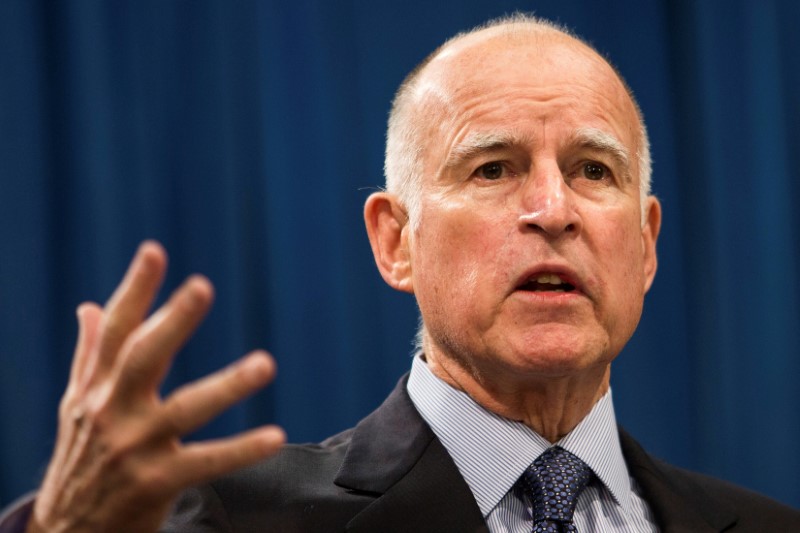By Dan Whitcomb
LOS ANGELES (Reuters) - California's legislature passed a package of bills that extends the state's signature plan to address climate change by a decade, sending Governor Jerry Brown a cap-and-trade plan that uses market forces to cuts greenhouse gas emissions.
The legislation puts California at the forefront of plans by mostly Democratic governors to reduce carbon emissions and adhere to the goals of the Paris climate change agreement even after Republican President Donald Trump withdrew the United States from the pact.
Brown and other state Democratic leaders have vowed to make California the leader in opposing the environmental policy of Trump, who has rolled back the programs of his predecessor, Barack Obama.
The new California legislation emerged from long negotiations, although only a single Republican joined Democrats in voting in favor of the legislative package in the state Senate on Monday afternoon. Hours later, the Assembly voted 55 to 21 to send the legislation to Brown.
"Tonight, California stood tall and once again, boldly confronted the existential threat of our time. Republicans and Democrats set aside their difference, came together and took courageous action. That's what good government looks like," Brown said in a statement.
Speaking in opposition, State Senator Andy Vidak said the laws represented a "regressive" tax that would not make any impact on climate change.
"We could shut down the entire state of California and it would have no effect on the global climate," Vidak said.
The legislation extends California's cap-and-trade program, which was set to expire in three years, through 2030 and attempts to strengthen it by requiring large industrial facilities to upgrade old equipment with cleaner, more modern technology by 2023.
California's cap-and-trade plan sets a state limit on emissions of greenhouse gases and lets companies, such as factories and refineries, buy and sell permits to emit carbon dioxide. The system uses market forces to find the most efficient ways to cut pollution, supporters say.
The new package seeks to reform the state's existing cap-and-trade market by curbing the number of free carbon allowances by 40 percent by 2030 and requiring that offsets be sourced from California, not elsewhere.
Despite holding a supermajority, Democrats had failed in previous attempts to pass new cap-and-trade legislation over opposition from more liberal members of the party who felt it did not go far enough and moderates concerned about the impact on business.

Republicans were largely united in opposing the legislation, saying it places unfair burdens on consumers and employers, especially on top of a 12-cents-a-gallon gasoline tax hike passed by state lawmakers earlier this year.